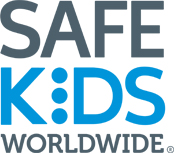You are here
Search
Safe Kids and program sponsor General Motors are joining together for an opportunity for high school students who reside in an area with a local Safe Kids coalition. The Take it From a Teen video challenge is a chance for teens to share their wisdom on safe driving and passenger practices from the first time their parents turned their car seat forward facing. Plus, teens could win $100 or even $1,000!
The teen applicant will create a 60-second video that answers one of the following questions:
This informal survey was conducted by Safe Kids coalitions during Child Passenger Safety Week in September 2017 to see if parents who attended car seat checkup events could identify a tether on their car seat, where the anchor for the tether was in their car and what they called the tether if by
Watch our Safety in Seconds video to get tips on how to keep your little one sleeping safe and sound.
Our Ask the Expert column helps answer the question about bulky coats and car seats.
The Questions
“Is it safe for my child to wear a winter coat in her car seat?”
- Jacki from MD
This is a question that comes up every winter. The short answer is yes, it can be safe but only with the proper precautions.
I am thrilled to announce an exciting new partnership with Union Pacific.
Safe Kids Worldwide and Union Pacific share a commitment to making communities safer for children and families and for the next three years we will be working together to focus on rail safety.
Between 2012 and 2016, there were an average of nearly 2,100 collisions at railway crossings each year, resulting in an average of 244 deaths and 930 casualties – and more than 20 percent of casualties and deaths were children.
Local Grant Application Process Begins in April 2018
The original version of this press release can be found on Union Pacific’s website.
OMAHA, Neb., Feb. 1, 2018 – Union Pacific today unveiled its Community Ties Giving Program, which increases its overall community giving to more than $20 million. Designed to support two primary giving pillars – local grants and key partnerships – the company’s philanthropic outreach aligns with its longstanding commitment to Building America.
Apparently, I am now the father of a “bigger” little kid. Recently, my daughter made this distinction perfectly clear to us, not with her words but by testing and expanding her boundaries (and her parents’ anxiety). And, they both get pushed to their limit.
But, through this new period in our child’s exploration, we learned that, though we had done a good job of preparing our house to keep her safe so far, we had to take our home safety prep to another level, quite literally.
This blog was written by David Strickland, the Chairman of the Safe Kids Board of Directors and the former Administrator of the National Highway Traffic Safety Administration.
As Chairman of the Safe Kids Board of Directors, I am pleased to announce that, after an extensive nationwide search, Torine Creppy has been named the president of Safe Kids Worldwide.
Some say it is overly ambitious to think we can reach a goal of zero road fatalities involving people on foot and bikes. When it comes to keeping kids safe, there should be no other goal. There is nothing worse for a parent than losing a child. The tragedies are all the more devastating when they are a preventable injury. Things like fires, falls, drowning and car crashes. It’s a child not buckled up correctly in a car seat. It’s an 8th grader with headphones hit by speeding driver or a bicyclist hit by a teen driver who wasn’t required to have adequate on-the-road practice time.
New Research Reveals How Kids Get into Medicine and How to Help Protect Them
Washington, D.C. – Ask parents if they know it is important to store medicine out of children’s reach and sight after every use and 9 out of 10 will agree. But accidental medicine poisoning sends a child under 6 to the emergency room every nine minutes, and every 12 days, a child dies.
